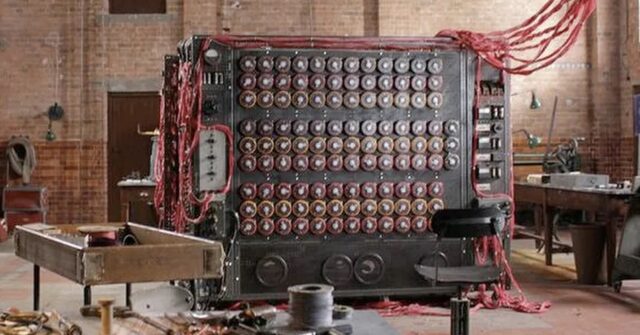Since time immemorial, technology has advanced in ways we could have never imagined. Moreover, it was developed by using some of the crazy ideas of genius mad scientists that changed the entire course of history.
From how Faraday discovered magnetism by simply running around his room all summer with a magnet on his shoulder to how Alan Turing gave birth to computers when he designed his machine called “Christopher” to break the Enigma code used by the Nazis in World War 2, technology is constantly evolving at quite the rapid rate.

With the introduction of Artificial Intelligence (AI), almost nothing seems impossible. Artificial Intelligence or AI is intelligence demonstrated by machines, as opposed to the natural intelligence displayed by creatures including humans. It’s the simulation of mortal intelligence processes held by machines, especially computer systems.
However, according to recent reports, there can be an astute connection between Artificial Intelligence and religion.
Artificial Intelligence And Religion
Artificial Intelligence and religion are two topics that have never been clubbed together before. However, there are potential links between AI and religious belief, which include the question of whether an artificial “superintelligence”, was one to arise, would be well-disposed towards us.
Religious traditions historically assume that creations are well disposed to those who made them. However, what is fascinating but alarming is how recent US cults claim to be ready to worship such a “super-intelligence”, if and when it emerges, as well as other futurist discourse on “Transhumanism” and its roots in 18th-century rationalism.
As Artificial Intelligence becomes more ubiquitous what happens to religion?
In 2017, an automation company named Patil Automation in Ahmedabad came up with the idea of letting a robot perform one of the most quintessential Hindu religious rituals – the aarti, for the ongoing Ganapati festival.
According to a worker in the Patil Automation,
“It was an innovative idea to show the country is moving ahead. The robot was not supplanting humans; it was more of a decoration.”
On 17th September 2014, Tirupati’s most famous temple – Venkateshwara decided to mechanize the making of prasadam – laddoos owing to the growing demand of worshippers. The making of God’s food by his worshippers was replaced by growing technological development.
However, the gamers or the hereditary trustees of the temple kitchen were offended. According to the president of the Gamekar’s Association, Padmanabha Iyengar,
“This offends religious sentiments. It is against the shastras to introduce automatic machines. The laddus are prasadams and have to be made by hand.”
Regardless of the introduction of AI technology into religious practices, it is said that Artificial Intelligence existed in India for ages ago.
Read More: Artificial Intelligence Is Hijacking Art History And Here’s How
Introduction Of Artificial Intelligence In India
The concept of Artificial Intelligence is considered to be the brainchild of John McCarthy and Marvin Minsky. It was in a workshop at Dartmouth College in 1956 that Artificial Intelligence was introduced as a field of research.
However, it was Professor H.N Mahabala who brought the concept to the shores of India with the creation of his UNDP-backed Knowledge-Based Computing Systems (KBCS) in 1986.
This particular piece of information is considered to be concrete but what the world fails to see is that Artificial Intelligence dates back 8000 to 11000 years, with myths, stories, and rumors of artificial beings endowed with intelligence or consciousness by ancient Rishis of India.
According to Scholar Mrinmoy Roy who holds a Ph.D. in An Exploratory study on Origin of AI: Journey through the Ancient Indian Texts & other technological descriptions, its past, present & future,
“The seeds of modern AI were planted by classical philosophers who attempted to describe the process of human thinking as the mechanical manipulation of symbols. This work culminated through Knowledge and ideas on many of the technological advancements that we are witnessing today had already been articulated in holy books of Hinduism like The Ramayana, The Mahabharata, The Bhagavad Gita, The Vedas & Upanishads which were believed to be written 5000 to 8000 years ago (3000 BC – 6000 BC). Those are not only the holy epics of Hindu civilization but the proof of the existence of India.”
Experts claim that major global faiths have been in conversation regarding the incorporation of Artificial Intelligence into their worship – robot priests reciting prayers, performing funerals, and even comforting those who need spiritual guidance.
However, the question arises whether this is just a gimmick or is it a way of transforming how people experience faith.
Disclaimer: This article is fact-checked.
Image Sources: Google Images
Feature Image designed by Saudamini Seth
Sources: BBC, New York Times, CNBC
Find the Blogger: @Rishita51265603
This post is tagged under artificial intelligence, religion, religious freedom, artificial intelligence stunts religious freedom, robots doing aarti, quintessential Hindu religious practice, mechanization of food offered to Gods, laddus, Venkateshwara temple, transhumanism, super-intelligence, Patil Automation, John McCarthy and Marvin Minsky, Artificial Intelligence dates back 8000 to 11000 years, the Vedas and Upanishads, Ramayana, Hindu mythologies
We do not hold any right/copyright over any of the images used. These have been taken from Google. In case of credits or removal, the owner may kindly mail us.
More Recommendations:
Here’s How Real-Time Kissing Is Finally Possible In Virtual Reality
[…] Also Read: How Artificial Intelligence Will Change The Future Of Religious Freedom […]
[…] Also Read: How Artificial Intelligence Will Change The Future Of Religious Freedom […]
[…] Also Read: How Artificial Intelligence Will Change The Future Of Religious Freedom […]
[…] Also Read: How Artificial Intelligence Will Change The Future Of Religious Freedom […]